Table of Contents
Sweet and juicy, melons can bring a refreshing break from the summer heat. Part of the Cucurbitaceae family, melons are related to cucumbers, squash, and watermelon, similarly grown for their edible fruits. In the United States, orange-fleshed melons are usually sold in grocery stores, while lesser-known varieties with green or yellow interiors can be found in farmers markets.
Growing melons in your home garden allows you to enjoy other melon varieties with distinct flavors and textures. They can add vibrant colors and distinct aromas that stimulate your senses.
Before buying seeds, get to know these common types of melons.
Common Melon Types
Melons are a diverse fruit with wide-ranging categories and cultivars. Botanically, a melon is a type of berry and comes in varying sizes. They provide a number of health benefits as good sources of vitamin C and potassium and powerful antioxidants to the body.
To have a deeper understanding of melons, let’s first differentiate heirloom from hybrid varieties.
Heirloom and Hybrid Melons
Amarillo Oro, Banana, Branco Do Ribatajo, Honey Rock, Iroquois, Piel De Sapo, and Rocky Ford Green Flesh are some of the most popular examples of heirloom melon varieties. To be considered heirloom, a variety should be free from crossbreeding for at least 40 to 50 years. Being true-to-seed, heirloom types are excellent for seed saving as you get the same traits as the parent plant. Typically, heirloom plants have been passed down from generation to generation by ethnic, familial, or other social groups. However, there are cases when a variety is maintained heirloom by private organizations, such as seed companies and universities.

Through deliberate and manual crossbreeding of two different melon varieties, a hybrid is produced. Popular examples of hybrid melons include Alvaro, Divergent, Halona, Melonade, Moonstruck, Sugar Cube, Sugar Rush, Tasty Bites, and Tirreno. Agriculturists can select favorable traits and imbue the resulting hybrid. Improvements on flavor, growth, size, and yield can also be made.
Other Popular Melon Groupings
Discover some of the most common melon varieties classified by their distinct characteristics.
Types of Melon Skin Colors
From green to orange varieties, melons have different skin colors.
| Melon Skin Colors | Common Examples (Where to Buy) |
|---|---|
| Cream- and Pale-Skinned Melons | Branco Do Ribatejo (True Leaf Market) Hakucho (True Leaf Market) Honeydew Green Flesh (Eden Brothers, True Leaf Market) Honeydew Orange Flesh (Eden Brothers, True Leaf Market) Moonstruck (Territorial Seed Company) Tam Dew (True Leaf Market) |
| Green-Skinned Melons | Early Valencia (True Leaf Market) Ichiba Kouji (True Leaf Market) Green Nutmeg (True Leaf Market) Scrumptious F1 (True Leaf Market) Sharlyn (True Leaf Market) |
| Orange-Skinned Melons | Tigger (Territorial Seed Company, Rare Seeds) |
| Striped Melons | Aspire F1 (True Leaf Market) Early Silver Line (True Leaf Market) Charentais (Eden Brothers, True Leaf Market, Rare Seeds) D’Artagnan (Territorial Seed Company) Honey Rock (Eden Brothers, True Leaf Market) |
| Yellow-Skinned Melons | Canary Yellow (True Leaf Market) Casaba Sungold (True Leaf Market) Crenshaw (True Leaf Market) Golden Beauty (True Leaf Market) Golden Delicious (True Leaf Market) New Melon (True Leaf Market) |
Types of Melon Flesh Colors
Similar to their exterior, melon flesh does not come in only one color. Discover green- and orange-fleshed melons (with paler varieties in between) to add a pop of color to your fruit bowls.
| Melon Flesh Colors | Common Examples (Where to Buy) |
|---|---|
| Green-Fleshed Melons | Green Nutmeg (True Leaf Market) Honeydew Green Flesh (Eden Brothers, True Leaf Market) Honeycomb (Territorial Seed Company) Rocky Ford (Eden Brothers, True Leaf Market) Tam Dew (True Leaf Market) |
| Orange-Fleshed Melons | Alvaro (Territorial Seed Company) Athena (Territorial Seed Company, True Leaf Market) Divergent (Territorial Seed Company) Minnesota Midget (Eden Brothers, Territorial Seed Company) Home Run (Territorial Seed Company) Sugar Rush (Territorial Seed Company) Tirreno (Territorial Seed Company) |
| Pale- and White-Fleshed Melons | Eindor (True Leaf Market) Hara Madhu (Rare Seeds) Kiku Chrysanthemum (Rare Seeds) Moonstruck (Territorial Seed Company) New Melon (True Leaf Market) Tigger (Territorial Seed Company, Rare Seeds) |
Types of Melon Shapes
While round melons are more common in the market, there are varieties of melons that grow with cylindrical or elongated shapes.
| Melon Shapes | Common Examples (Where to Buy) |
|---|---|
| Elongated Melons | Banana (Eden Brothers, True Leaf Market, Rare Seeds) Bidwell Casaba (True Leaf Market) Golden Crispy (Rare Seeds) Piel De Sapo (True Leaf Market) Whimsy F1 (True Leaf Market) |
| Spherical Shapes | Ball 2076 Hybrid (True Leaf Market) Delicious 51 (Territorial Seed Company) Edisto 47 (Eden Brothers, True Leaf Market) Hales Best Jumbo (Eden Brothers, True Leaf Market) Hearts of Gold (True Leaf Market) Imperial 45 (True Leaf Market) |
Types of Melon Flavors
Generally, ripe melons have a sweet flavor.
| Melon Flavors | Common Examples (Where to Buy) |
|---|---|
| Citrusy Melons | Banana (Eden Brothers, True Leaf Market, Rare Seeds) |
| Mild Melons | Ambrosia Hybrid (True Leaf Market) Athena (Territorial Seed Company, True Leaf Market) Ball 2076 Hybrid (True Leaf Market) Edisto 47 (Eden Brothers, True Leaf Market) Golden Beauty (True Leaf Market) Honeydew Green Flesh (Eden Brothers, True Leaf Market) |
| Sweet Melons | Collective Farm Woman (True Leaf Market) Crenshaw (True Leaf Market) Hearts of Gold (True Leaf Market) Honey Rock (Eden Brothers, True Leaf Market) Imperial 45 (True Leaf Market) Top Mark (Eden Brothers, True Leaf Market) |
Types of Melon Skin Textures
Some melon varieties have a netted outside rind with a rough texture.
| Melon Skin Textures | Common Examples (Where to Buy) |
|---|---|
| Rough-Skinned Melons | Hales Best Jumbo (Eden Brothers, True Leaf Market) Halona (Territorial Seed Company) Hearts of Gold (True Leaf Market) Ichiba Kouji (True Leaf Market) Minnesota Midget (Eden Brothers, Territorial Seed Company) Tirreno (Territorial Seed Company) Top Mark (Eden Brothers, True Leaf Market) |
| Smooth-Skinned Melons | Boule D’or (Rare Seeds) Honeycomb (Territorial Seed Company) Honeydew Green Flesh (Eden Brothers, True Leaf Market) Honeydew Orange Flesh (Eden Brothers, True Leaf Market) New Melon (True Leaf Market) Orange Silverware (Territorial Seed Company) |
Types of Melon Flesh Textures
This fleshy fruit can add a nice bite to your fruit salads. Some melon varieties are juicier than others.
| Melon Flesh Textures | Common Examples (Where to Buy) |
|---|---|
| Firm Melons | Athena (Territorial Seed Company, True Leaf Market) Charentais (Eden Brothers, True Leaf Market, Rare Seeds) Ford Green Flesh (True Leaf Market) Gallo (True Leaf Market) Planters Jumbo (True Leaf Market) |
| Juicy Melons | Delicious 51 (Territorial Seed Company) Edisto 47 (Eden Brothers, True Leaf Market) Melonade (Territorial Seed Company) Piel De Sapo (True Leaf Market) Sharlyn (True Leaf Market) Sugar Cube (Territorial Seed Company) |
Types of Geographic Origins
Melons are believed to have originated in Asia, later on spreading to Africa and other parts of Central Asia.
| Geographic Origins | Common Examples (Where to Buy) |
|---|---|
| European, and Mediterranean Melons | Alvaro (Territorial Seed Company) Athena (Territorial Seed Company, True Leaf Market) Charentais (Eden Brothers, True Leaf Market, Rare Seeds) Sharlyn (True Leaf Market) |
| North American Melons | Bidwell Casaba (True Leaf Market) Delicious 51 (Territorial Seed Company) Hales Best Jumbo (Eden Brothers, True Leaf Market) Minnesota Midget (Eden Brothers, Territorial Seed Company) Oregon Delicious (Territorial Seed Company) Sugar Cube (Territorial Seed Company) Top Mark (Eden Brothers, True Leaf Market) |
| Asian Melons | Golden Beauty (True Leaf Market) Ichiba Kouji (True Leaf Market) Orange Silverware (Territorial Seed Company) Tigger (Territorial Seed Company, Rare Seeds) |
Types of Culinary Uses
With many raw culinary applications, melons are commonly enjoyed fresh. You can slice and consume them conveniently.
| Culinary Uses | Common Examples (Where to Buy) |
|---|---|
| Melons for Juicing | Delicious 51 (Territorial Seed Company) Hales Best Jumbo (Eden Brothers, True Leaf Market) Melonade (Territorial Seed Company) Piel De Sapo (True Leaf Market) Sharlyn (True Leaf Market) Sugar Cube (Territorial Seed Company) |
| Melons for Salads | Ford Green Flesh (True Leaf Market) Gallo (True Leaf Market) Honeydew Green Flesh (Eden Brothers, True Leaf Market) Tam Dew (True Leaf Market) Tendral Verde Tardif (True Leaf Market) |
Types of Disease Resistance
Some varieties of melon are more resistant to disease than others.
| Disease Resistance | Common Examples (Where to Buy) |
|---|---|
| Disease Resistant Melons | Delicious 51 (Territorial Seed Company) Divergent (Territorial Seed Company) Halona (Territorial Seed Company) Melonade (Territorial Seed Company) Minnesota Midget (Eden Brothers, Territorial Seed Company) Sugar Cube (Territorial Seed Company) Tasty Bites (Territorial Seed Company) Tirreno (Territorial Seed Company) |
| Susceptible Varieties | Canary Yellow (True Leaf Market) Crenshaw (True Leaf Market) Golden Beauty (True Leaf Market) |
Types of Preferred Growing Conditions
Plant melon seeds in well-drained soil with good sun exposure. If you have limited garden space, consider planting container melon varieties.
| Preferred Growing Conditions | Common Examples (Where to Buy) |
|---|---|
| Container Melons | Aspire F1 (True Leaf Market) Minnesota Midget (Eden Brothers, Territorial Seed Company) Orange Silverware (Territorial Seed Company) |
| Field/Greenhouse Melons | Ananas (Eden Brothers) Banana (Eden Brothers, True Leaf Market, Rare Seeds) Charentais (Eden Brothers, True Leaf Market, Rare Seeds) Edisto 47 (Eden Brothers, True Leaf Market) Hales Best Jumbo (Eden Brothers, True Leaf Market) Honey Rock (Eden Brothers, True Leaf Market) Rocky Ford (Eden Brothers, True Leaf Market) |
Popular Varieties of Asian Melons

These varieties of melon originated from one or more countries in Asia.
| Variety | Description | Days to Germination | Days to Maturity After Flowering | Where to Buy |
|---|---|---|---|---|
| Hakucho | Originating from Japan, Hakucho melon is an annual variety with a bright yellow skin and salmon-orange flesh. Plant the seeds in well-drained soil during late spring or early summer. | 7 to 14 days | 65 to 70 days | True Leaf Market |
| Ichiba Kouji | Ichiba Kouji is a netted melon variety reaching up to 3 pounds under ideal conditions. Enjoy the green, sweet flesh of this melon variety. | 4 to 10 days | 55 to 60 days | True Leaf Market |
| Sakata’s Sweet | This heirloom variety grows baseball-sized melons with a pale green exterior and interior. Sakata’s Sweet has been cultivated in Asia for its extremely aromatic flesh. | 4 to 10 days | 85 to 90 days | True Leaf Market |
Popular Varieties of Cantaloupe Melons

Also known as muskmelons, cantaloupes have distinct, netted rinds and flesh exuding a musky odor. You can find cantaloupes varieties with either green, orange, or pale-yellow flesh.
| Variety | Description | Days to Germination | Days to Maturity After Flowering | Where to Buy |
| Ambrosia Hybrid | Utah State University recommends Ambrosia melon for home gardeners due to its delicious flavor, powdery mildew resistance, and small seed cavity. | 7 to 14 days | 85 to 90 days | True Leaf Market |
| Athena | Resistant to Fusarium wilt and powdery mildew, this hybrid variety is an excellent storage melon with a long shelf life. It can reach up to 6 pounds, offering generous yields for gardeners. Athena’s bright orange flesh can add extra color to your fruit bowls. | 7 to 14 days | 75 to 80 days | Territorial Seed Company, True Leaf Market |
| Edisto 47 | Edisto 47 thrives best in warm environments with full sun exposure. It can also grow in sandy soils. This kind of cantaloupe melon can weigh anywhere from 3 to 5 pounds and has a salmon-colored interior. | 4 to10 days | 85 to 90 days | Eden Brothers, True Leaf Market |
| Hales Best Jumbo | First discovered in 1923, this California variety produces netted melons with an oval shape, and sweet, orange flesh. Less susceptible to powdery mildew, Hales Best Jumbo melons can provide extra sweetness to your salad and a sugary aroma to your vegetable garden. | 4 to 10 days | 85 to 110 days | Eden Brothers, True Leaf Market |
| Hearts of Gold | If you’re seeking medium-sized melons to fit a limited garden space, look no further. Hearts of Gold produces netted melons with orange, tender flesh. | 7 to 14 days | 80 to 90 days | True Leaf Market |
| Honey Rock | An All-America Selections winner, Honey Rock cantaloupe is a reliable variety with a high-yielding capacity of large melons, weighing about 7 pounds each under ideal conditions. | 5 to 10 days | 75 to 90 days | Eden Brothers, True Leaf Market |
Popular Varieties of Casaba Melons

As with cantaloupes, casaba melons have a slight tinge of musk in their flesh. Typically, you will find ridges across their rinds and a pointed tip. Most casaba melons have yellow skin, but paler and orange varieties exist.
| Variety | Description | Days to Germination | Days to Maturity | Where to Buy |
|---|---|---|---|---|
| Bidwell Casaba | Named after the civil war veteran, John Bidwell, this variety produces uniquely football-shaped melons with a sugary flesh best for late-season harvest. | 7 to 14 days | 95 to 100 days | True Leaf Market |
| Casaba Sungold | First developed in the University of New Hampshire, Casaba Sungold’s 7- to 8-inch melon ripens a month earlier than most casaba melon varieties. | 10 to 14 days | 85 to 110 days | True Leaf Market |
| Golden Beauty | Golden Beauty thrives well in areas with a hot and dry climate. It’s a mildly sweet, golden melon that has a wrinkled exterior, contrary to netted or smooth varieties. | 4 to 10 days | 110 to 115 days | True Leaf Market |
Popular Varieties of Crenshaw Melons

Crenshaw melons are typically characterized by their oblong or acorn-shaped fruits. These delicious melons have either yellow or green exterior rinds.
| Variety | Description | Days to Germination | Days to Maturity | Where to Buy |
|---|---|---|---|---|
| Crenshaw | Crenshaw melon is a result of crossbreeding between cantaloupe and casaba melons. Crenshaw’s yellow-green melon can reach up to 10 pounds. | 4 to 8 days | 110 to 115 days | True Leaf Market |
| Marvelous | This variety is known for its high yielding capacity and thick vine growth that help protect melons from sunburn. Marvelous is an exceptional storage melon, especially during winter. | 4 to 8 days | 100 to 105 days | True Leaf Market |
| White Crenshaw | This heirloom variety is similar to common Crenshaw, except its flesh is paler. | 7 to 14 days | 100 to 105 days | True Leaf Market |
Popular Varieties of Honeydew Melons

If you’re not fond of the musky aroma of some melon types, honeydew varieties are the best melon choice. These varieties offer sweet, juicy flesh without the muskiness. Most honeydew melons lack the netted appearance, generating an even exterior. In addition to their high water content, the sweet taste in these varieties is exceptional for juicing.
| Variety | Description | Days to Germination | Days to Maturity | Where to Buy |
|---|---|---|---|---|
| Earli-Dew Hybrid | Reaching anywhere between 2 and 3 pounds each, Earli-Dew melons come with smooth, pale green flesh rich with sweetness. The Utah State University recommends this variety for home gardeners due to its Fusarium wilt resistance and early maturity. | 4 to 8 days | 80 to 85 days | True Leaf Market |
| Honeydew Green Flesh | Suitable for hardiness zones 4 to 11 in the US, Honeydew Green Flesh grows a pale green skin with green flesh inside. | 5 to 10 days | 105 to 110 days | Eden Brothers, True Leaf Market |
| Honeydew Orange Flesh | Also dubbed as “Honeyloupe,” Honeydew Orange Flesh exudes both the mouthwatering sweet flavors of honeydew and crenshaw. As with Honeydew Green Flesh, expect subtle notes of creaminess from this variety. | 5 to 10 days | 105 to 110 days | Eden Brothers, True Leaf Market |
FAQ About Types of Melons
Do different types of melons need support to grow properly?
Planting melons will require some structural support for them to thrive and prevent the growing fruits from damaging the vines. Consider building a cage, fence, or trellis in your garden space when sowing vining plants like melons.
Which melon varieties have disease resistance?
If you’re looking for a disease-resistant melon variety, consider planting Delicious 51, Divergent, Halona, Melonade, Minnesota Midget, Sugar Cube, and Tasty Bites. Melons are prone to certain plant diseases, such as Anthracnose, downy mildew, early Alternaria blight, Fusarium wilt, mosaic virus, and powdery mildew.


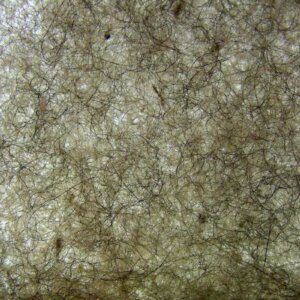
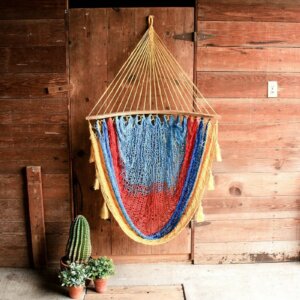




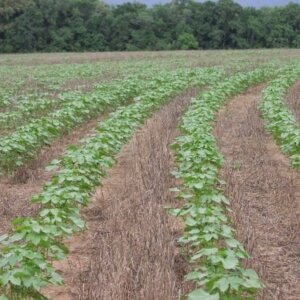

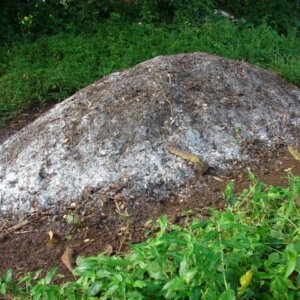
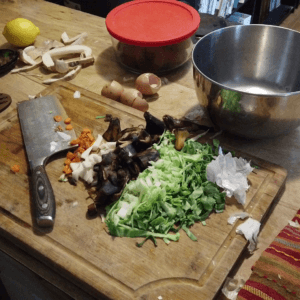
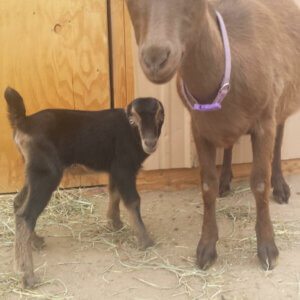
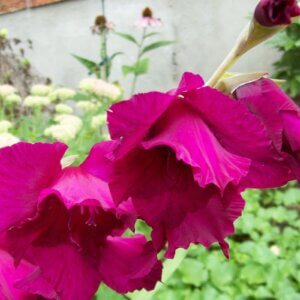
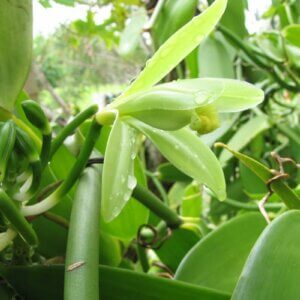
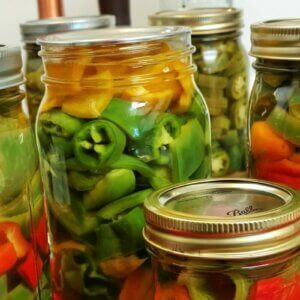

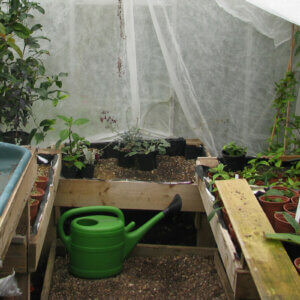





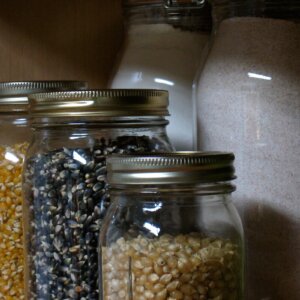


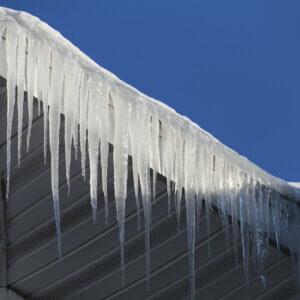

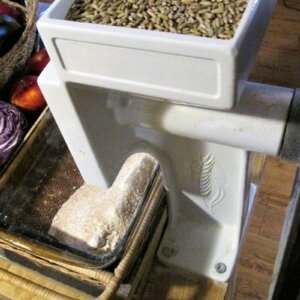
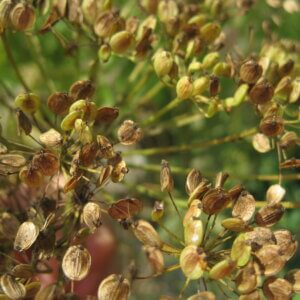


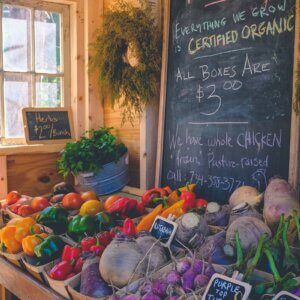
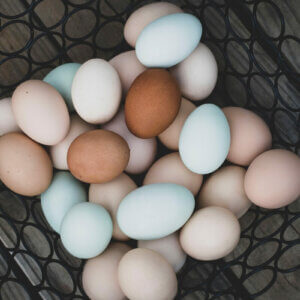
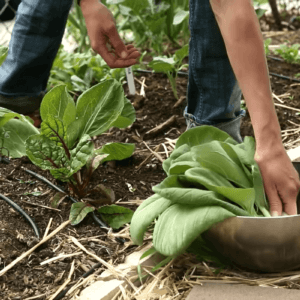
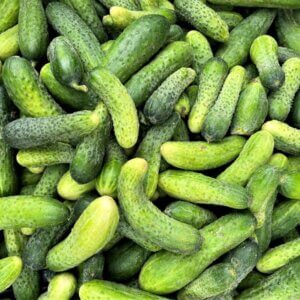
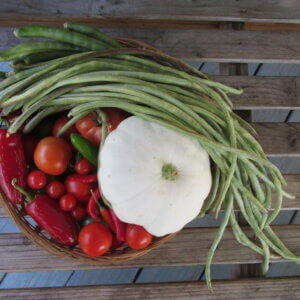

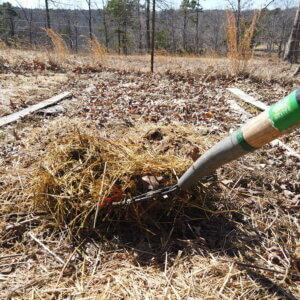
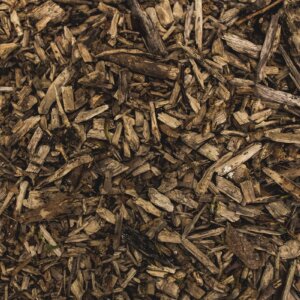
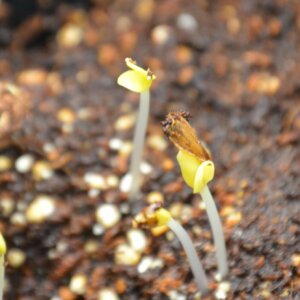
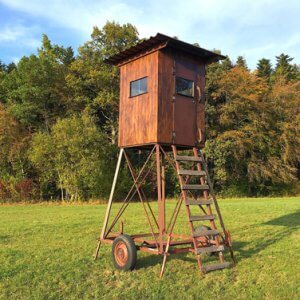
Leave a Reply